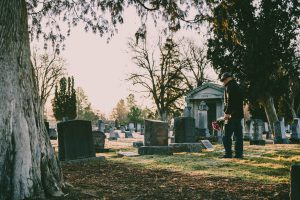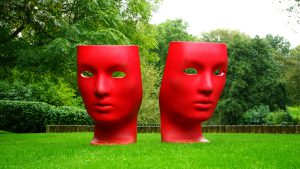
This is an attempt to explore the relationship between two great concepts belonging to the west and east, the imagined communities of Benedict Anderson and Rita, and the cosmic order respectively. The imagined community is a concept made by Benedict Anderson in 1983.
It is an analysis of nationalism in terms of unwritten laws that bound the people of a nation to stand together. According to him, “a nation is a socially constructed community imagined by the people who perceive themselves as part of that group”. He suggests it as “imagined” because the members of even the smallest nation will never know most of the other fellow members, meet them, or even hear them. Yet in their minds, each of them carries the image of communion, we-feeling, and oneness.
Rita is the principle of the natural order that regulates and co-operates the universe’s operation. It is the physical order of the universe, order of the sacrifice, and the moral law of the world. Rita leads to the doctrines of Dharma and Karma.
Dharma is the right way of living and the path of righteousness. Hinduism teaches, “It is the dharma of the bee to make honey, of cow to give milk, of the sun to radiate sunshine, of the river to flow”. Karma means ‘to act’. According to Yajnavalkya, an Indian sage “A man turns into something good by good action and something bad by bad action”. Thus action determines the nobility of a being. The facts which link the concepts of Rita and imagined community are,
Unwritten laws yet common end
There are no written laws that compel the entire universe to act as a single unit yet the microcosms even place themselves with utmost care to keep the rhythm of cosmos.
The citizens of a nation become true patriots not from the texts but from the heart. People are led by emotions rather than reasons. It is no longer gods guarding the rita, the cosmic moral order, but the sacrifice becomes the “protector of the order” and the “one who sacrifices become the moral hero.” The soldier who sacrifices his own life becomes the hero who joins the minds into a single unit.
Indispensable role of right action
Rita mentions the inevitable role of right actions (Dharma). Rig-Veda assures, “created beings fulfill their true nature when they follow the path set for them by the ordinance of rita.
The being that fails to fulfill its dharma welcomes sufferings and turmoil. The example of Hanumanthappa an Indian soldier who lived under snow for six days proved that even in death, he is a true man of defense who made a self offering for his own nation. Even though we have not seen, heard or met him, he has lit a spark of unity and marked a painful scar in our heart. Thus doing dharma generates a positive energy which can be held and commemorated by the rest of the cosmos.
Order grounded in equality
A nation can grow in oneness, only when one treats the other with equal respect and concern. Giving equal privilege irrespective of caste, creed or color will definitely intensify the true spirit of nationalism. In rita the gods are never portrayed as having command over the cosmic order, instead gods like all created beings, remain subject of the cosmic law, their role is limited that of ‘executors’ not of ‘governor’. The cosmic law can remain as it is only when gods act as executors not as superiors.
Even the prayers of an illiterate boy are equal to that of an old Brahmin priest. The prayers of insane are as valuable as of the Vedic mantras. The prayers made to rocks, trees and soil are equally countable to that of the heavenly gods like Indra, Varuna, Ushas and so on, because the godly feature of fullness is evident in all beings.
Balamani Amma’s offering presents a different Indian religious concept.





